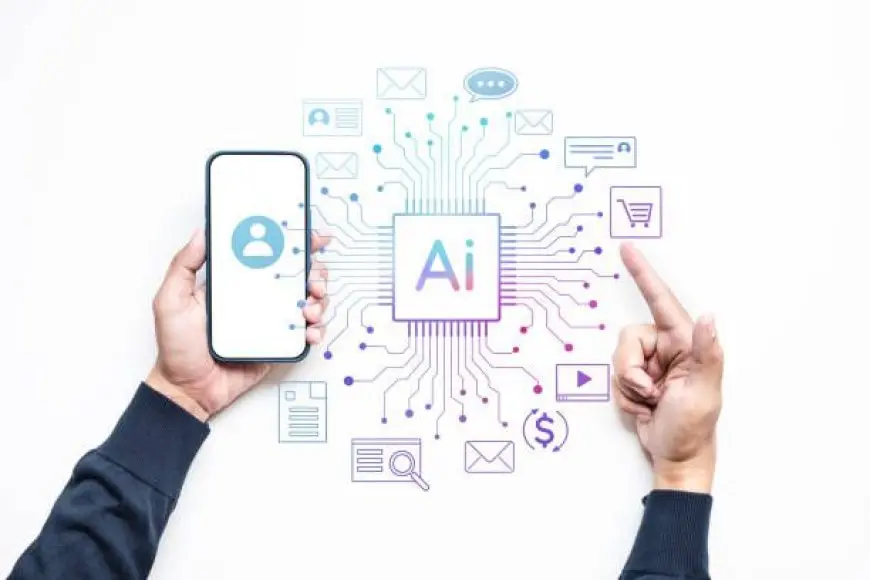"AI-Driven Personalized Marketing: Pros and Cons"
"AI-Driven Personalized Marketing: Pros and Cons"

Artificial intelligence (AI) has revolutionized the way businesses connect with their customers, and one of its most transformative applications is in personalized marketing. AI-driven personalized marketing uses advanced algorithms and machine learning to analyze vast amounts of data and deliver tailored content, products, and experiences to individual consumers. This approach has become a cornerstone of modern marketing strategies, offering both significant benefits and notable challenges.
The Pros of AI-Driven Personalized Marketing
Enhanced Customer Experience
AI-powered marketing enables businesses to create highly customized experiences for their customers. By analyzing user behavior, preferences, and past interactions, AI can predict what a customer might want or need. This leads to recommendations that feel intuitive and personal, making customers feel valued and understood. Whether it’s suggesting a new product, curating a playlist, or tailoring a website layout, personalized experiences improve customer satisfaction and engagement.
Improved Targeting and Segmentation
Traditional marketing often relies on broad demographic categories to target audiences. AI, however, takes segmentation to a new level by analyzing behavior patterns, purchase histories, and real-time data. This granular approach allows marketers to target specific groups or even individual customers with precision, increasing the relevance and effectiveness of campaigns.
Increased Conversion Rates
Personalization can significantly enhance conversion rates. When customers receive offers or recommendations tailored to their preferences, they are more likely to act on them. AI can optimize email campaigns, push notifications, and advertisements, ensuring that the right message reaches the right person at the right time, driving sales and fostering loyalty.
Cost Efficiency
While implementing AI systems requires an upfront investment, the long-term cost savings can be substantial. AI automates many tasks that traditionally required manual effort, such as data analysis, content creation, and campaign management. This efficiency allows businesses to allocate resources more effectively and focus on strategic initiatives.
Real-Time Insights and Adaptability
AI systems process and analyze data in real-time, enabling marketers to make informed decisions quickly. If a campaign isn’t performing as expected, AI can identify the issue and adjust the strategy on the fly. This agility ensures that marketing efforts remain effective and relevant, even in dynamic market conditions.
Scalability
AI-driven marketing is highly scalable. Whether a business serves hundreds or millions of customers, AI can manage and personalize interactions at scale without compromising quality. This makes it an invaluable tool for businesses looking to grow while maintaining a strong connection with their audience.
The Cons of AI-Driven Personalized Marketing
Privacy Concerns
The data-driven nature of AI personalized marketing raises significant privacy issues. Collecting and analyzing user data can feel intrusive to consumers, especially if they are unaware of how their information is being used. Mishandling or overusing personal data can erode trust and lead to regulatory challenges, particularly with laws like the General Data Protection Regulation (GDPR) and the California Consumer Privacy Act (CCPA) enforcing strict data protection measures.
Dependence on Data Quality
AI is only as good as the data it is trained on. Poor-quality or biased data can lead to inaccurate predictions and recommendations, potentially alienating customers or misdirecting marketing efforts. Ensuring data accuracy and diversity is a critical but challenging aspect of implementing AI in marketing.
Cost of Implementation
While AI offers long-term savings, the initial setup can be expensive. Businesses must invest in advanced technology, skilled personnel, and ongoing maintenance to ensure the system operates effectively. For small businesses or startups, these costs may be prohibitive, limiting access to the benefits of AI-driven marketing.
Risk of Over-Personalization
Over-personalization can backfire, making customers feel surveilled or uncomfortable. Constantly targeting individuals with hyper-specific content might come across as intrusive rather than helpful. Striking the right balance between personalization and privacy is essential to avoid alienating customers.
Ethical and Bias Issues
AI systems can inadvertently perpetuate biases present in the data they are trained on. For example, biased algorithms might favor certain demographics, leading to unequal representation or unfair treatment in marketing campaigns. Ensuring that AI operates ethically and inclusively requires careful oversight and constant refinement.
Overreliance on Automation
While AI automates many aspects of marketing, it lacks the human touch required for creativity and emotional intelligence. Overreliance on AI may lead to campaigns that feel impersonal or fail to resonate on a deeper level. Marketers must balance AI-driven insights with human creativity to deliver compelling and authentic messages.
Finding the Balance
To maximize the benefits of AI-driven personalized marketing while minimizing its drawbacks, businesses need a thoughtful and strategic approach. Transparency is key—consumers should understand how their data is being used and have control over their preferences. Regular audits of data and algorithms can help ensure accuracy, fairness, and compliance with privacy regulations. Furthermore, combining AI’s analytical capabilities with human creativity and empathy can result in more impactful campaigns.
As AI technology continues to evolve, its role in personalized marketing will only expand. Businesses that leverage its potential responsibly and ethically will not only enhance customer experiences but also build lasting trust and loyalty.







